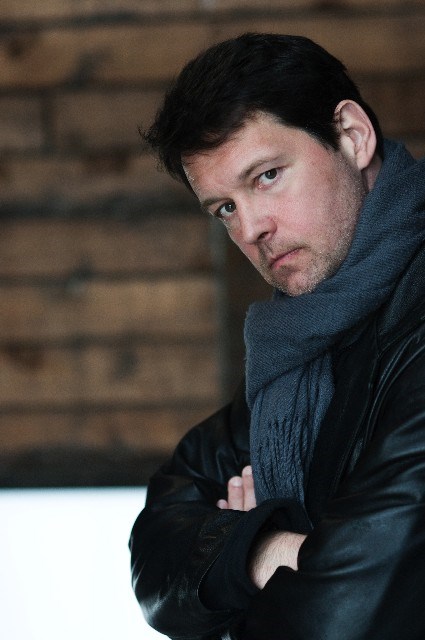The conquest of the locusts

01.09.2008
By Declan HillIn an exclusive extract for Play the Game, provided by courtesy of publishers McLelland & Stewart, Hill introduces readers to the realities of match-fixing in professional sport.
He was a great guy. He took me into “table talks” with the Tiger Generals. That is a rank in the triads. They would sit down and pull out their knives and screwdrivers, put them on the table and then it was, “Okay, let’s talk.” There were men behind us, armed bodyguards, and we would just wait. This was all the ritual of the table talk. It depended on the invitation. If the invite said, “Between 7:00 and 7:30,” it meant “there was still room for talk.” If it said, “7:30 exactly,” it meant “you are going to fight.”
On October 2, 2004, Yang Zuwu, the manager of the Chinese team Beijing Hyundai, did something odd. In the eighty- fourth minute of a game in front of thousands of fans at the Wulihe Stadium in Shenyang, he ordered his team to walk off the field. The referee had just called a penalty against his team. However, several even odder things followed Yang’s command. Not only did his entire team obey him, but as the players sat in their dressing room, Yang stood outside and announced that his team was refusing to take part in the rest of the match or in any more matches in the Chinese Super League.
Yang was no ordinary head of an ordinary team that could be dismissed for mere petulance. Beijing Hyundai was one of the richest teams in the league, sponsored by the Korean car company. Yang Zuwu, a veteran of more than forty years of Chinese soccer, declared that the league was too full of “faked matches, black whistles, illegal betting on games, and other ugly phenomena.” All these factors had become so blatant that it was, in his view, impossible to play honestly in the league. Yang received support from other top clubs. One official, Xu Ming, the owner of the Dalian Shide football club and the most powerful private investor in the sport, came out publicly with his support, saying that another group of teams was also considering pulling out of the Chinese league because the corruption was so bad.
At first, the Chinese Football Association (CFA) refused to listen. It was all too embarrassing. They had only established the new league six months before Yang’s pull out. The idea had been to establish an elite, professionally run league that could help catapult Chinese soccer to the top of the world game. Each team that wanted to participate in the league had to have a capitalization of tens of millions of dollars. A prominent Asian soccer official who had visited one of the Chinese clubs described it in awestruck tones:
"I visited one club that had twelve practice pitches: an Olympic standard stadium, fitness centre, community centre. There were dormitories, housing complexes. It was incredible, like something out of the days of Mao."
Now, with Mr. Yang’s very public protest, only six months after its inception, the Chinese Super League, with all its hundreds of millions of dollars, had effectively collapsed.
It really should not have come as a surprise to anyone connected with Chinese soccer. For years before the founding of the Super League, the Chinese Football Association had heard about the stories of corruption that swirled around their sport. The Chinese national team had taken part in the 2002 World Cup; they had not scored a goal and it was alleged in Chinese newspapers that they had thrown their games in return for gambling payoffs. The players and officials all denied it, claiming that they would never betray their country; however, many newspapers remained skeptical. But the big scandal that might have led to a cleansing of the game was the Black Whistles Affair.
It broke in 2001, when Song Weiping, a construction magnate turned soccer club owner, went public with his complaints about corruption. He made hundreds of millions as a property developer and sponsored his city’s second division soccer team. Then Song publicly threatened to give up soccer for the kinder, gentler world of the construction business because the sport was so corrupt and he was tired of paying bribes to referees. Song even provided documents and a list of referees who took bribes – “most of them,” he alleged.
A sports newspaper, Qiu Bao, took up the investigation and discovered that the corruption might have spread further, right into the Chinese Football Association. One team alleged that they had paid 800,000 RMB (Chinese renminbi, roughly us$100,000) to an official of that organization – alternately described by commentators as “non- descript” to “radioactive – everything they touchseems to shrivel and die” – to appoint referees favourable to their team.
The Chinese Football Association responded to this situation by declaring an amnesty and no public exposure for any corrupt referee who came forward. Gong Jianping, the chief referee of the association and a FIFA- ranked international referee, promptly took them up on their offer.
Just as promptly, the Chinese authorities broke their word and arrested him. His trial featured accounts of sex bribes for referees and card games with high- ranking Chinese Football Association officials. An ambitious referee, it was alleged, was supposed to play cards for high stakes with the CFA officials, then lose the game, so that the officials would receive his money. In return, the referee would receive the plum international games to referee. The only way the average referee could afford to play in the card games was to accept bribes. For his apparent honesty, Gong Jianping received the “lenient sentence” of ten years in a hard labour camp. He died soon afterwards. Since then, no other referee has taken up the Chinese Football Association’s offer of an amnesty.
- Copyright Declan Hill and McLelland & Stewart. Read more at www.howtofixasoccergame.com





